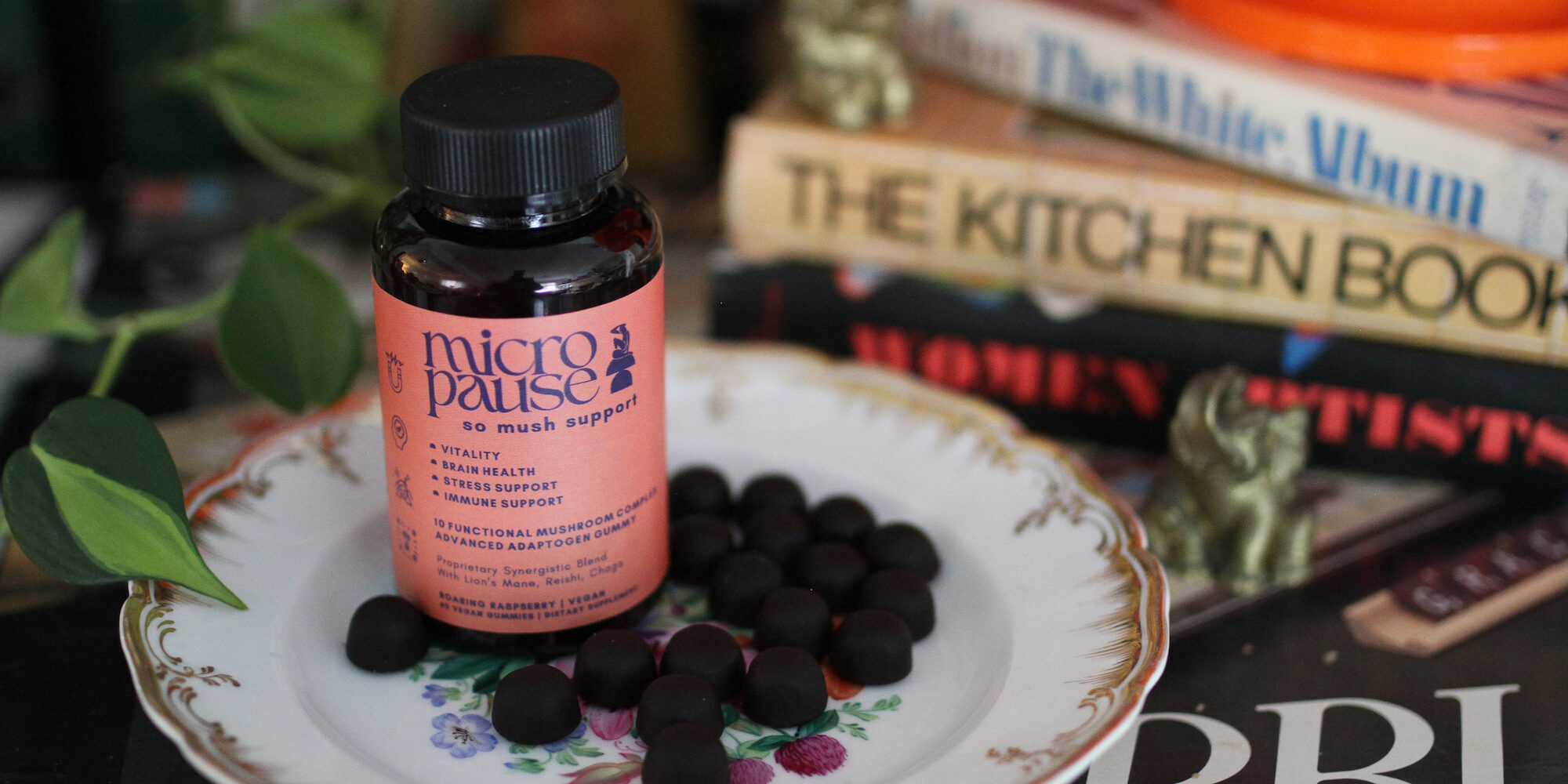
New Brand Micropause Harnesses Mushrooms To Support People In Menopause
Don’t let the name Micropause fool you. Although founder Emily Wagner has been a longtime fan of microdosing psilocybin, she launched the menopause-centered supplement brand sans the psychedelic fungi—for now.
“I’m calling it Micropause because I want to set myself up for a few years from now when we can bring that in,” says Wagner, an actress, fitness instructor, creative director, former managing editor of The Chalkboard and editor in chief of lifestyle content destination Groomed LA for the past 15 years. “I’m deep in that world so we know it’s around the corner. We’re not there yet, though, so I have to be very careful with that language and messaging for the average woman.”
Micropause’s two inaugural products don’t contain magic mushrooms, but they’re stacked with other adaptogenic and nootropic shrooms. Maitake, shiitake, lion’s mane, reishi, cordyceps, chaga, turkey tail, white button, black fungus and royal sun are all in So Mush Support, a daily gummy supplement designed to boost cognition, focus, energy, gut health and immunity.
The gummy supplement Girls Gone Mild is formulated with ashwagandha, zinc and vitamin D to manage stress and address common menopause symptoms like hot flashes, night sweats and mood swings. Both Girls Gone Mild and So Mush Support are priced at $39.99.
Wagner doesn’t view Micropause’s supplements as alternatives to hormone replacement therapy. Instead, they’re intended to be sources of additional relief. “They talk about some of these mushrooms having estrogen-like effects, but it’s not going to replace estrogen obviously,” says Wagner. “I’m never going to pretend that it does. This isn’t the magic elixir. This is a support system.”

Wagner first felt the effects of menopause when she was creative director at Herbalife in 2018. As she sat through marathon meetings donning power suits, she experienced dramatic hot flashes. She was 51. “The sweat was dripping down my legs,” recalls Wagner. “You could see it on the floor, it was mortifying. Until you’re in it, you don’t think about it. It started to happen to me, and I’m like, ‘This must be perimenopause.’”
Wagner hunted for solutions at CVS and Amazon, but encountered almost nothing for menopause—and what did exist didn’t speak to her. She says, “The marketing, the branding was like ‘The Golden Girls.’ I didn’t even want to buy it. It was not me, I’m a badass.”
Wagner decided to launch a wellness brand for menopause that spoke to her. She initially set out to create cannabis tinctures in 2019. Once the pandemic hit, she put the project on hold. Soon, she began hearing about several new menopause wellness brands popping up and figured she should revisit her idea of launching a brand.
Mushroom ingredients made perfect sense for her concept. Wagner explains, “There’s thousands of studies about every single mushroom in my product, how it can support menopause in some way, whether it’s reducing inflammation, gut health, mood, stress, anxiety, sleeplessness, even hot flashes and night sweats.”
A gummy format made sense, too. Each of Micropause’s gummies has two to five grams of sugar. They’re vegan and gluten-free. “I didn’t want another pill. I’m not going to walk around with a patch. Tinctures are a pain in the ass. They get on your teeth, you can’t throw it in your bag,” says Wagner. “And I was like, ‘I love gummies, I love a little sweet treat.’”
At $39.99 for a month’s supply, Wagner deems Micropause’s supplements accessible, if not quite affordable for everybody. The brand is currently available online on its website, but she envisions it going into mass-market retailers like CVS, Target and Walmart in the future.
Wagner estimates she spent between $20,000 to $30,000 to get Micropause off the ground, leaning heavily on her own branding and design chops. She looked into hiring a design firm, but says she discovered that no one “would even talk to her” for less than $25,000.
“I’m doing it all myself,” she reports. “Creating the content, copywriting, creative for the website because that’s what I do anyway for other brands. The biggest chunk of the money spent so far has gone to developing the brand’s website.”
Micropause joins a burgeoning category of plant-based ingestible wellness brands like Wile, Stella Via and O Positiv’s Meno for people in perimenopause and menopause. Multicategory menopause brands such as Womaness and Stripes offer herbal supplements and probiotics in addition to targeted skincare, haircare and body care products.
Wagner plans to expand Micropause beyond ingestibles. “There’s definitely going to be something for vaginas,” she hints. “I also love a mist.” However, more ingestibles will arrive before a vaginal lubrication product or skin mist. A sleep aid and a supplement for hair, skin and nails are up next.





Leave a Reply
You must be logged in to post a comment.